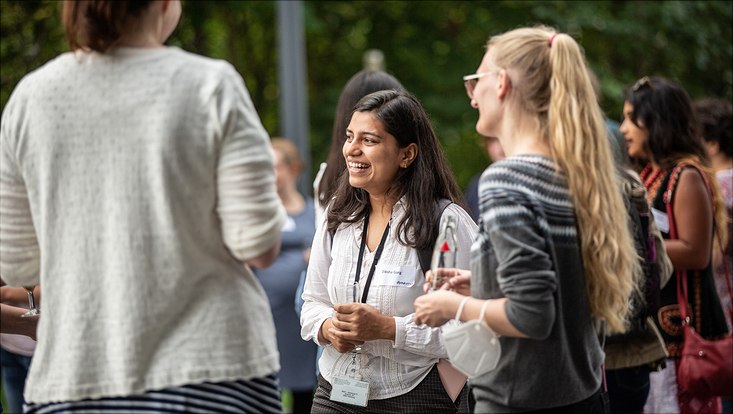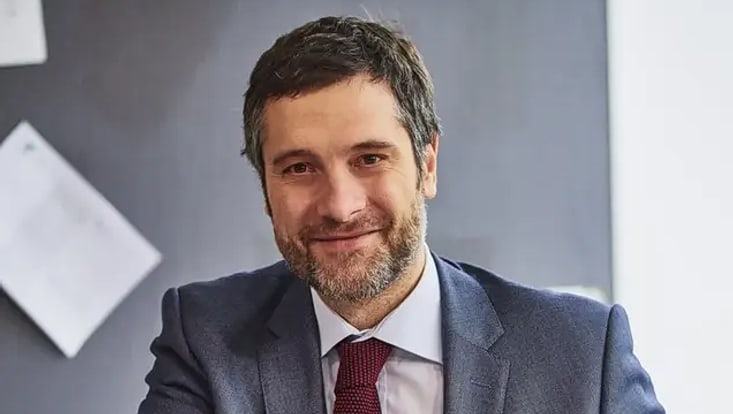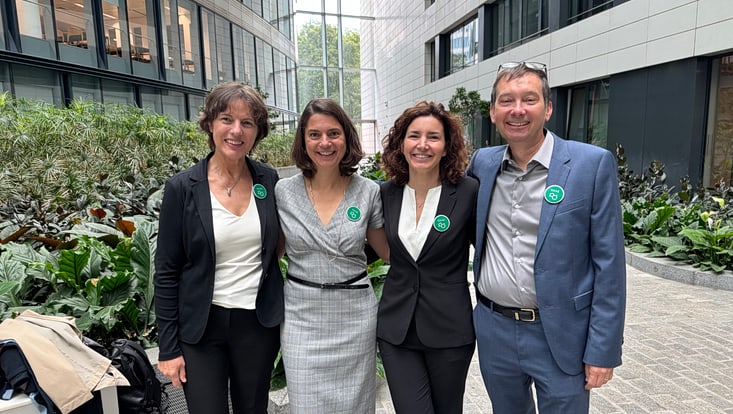Imaging of Matter
„Yes, I can do that too! I am not alone when it will be difficult”
17 September 2021

Photo: UHH/ M. Feck
Visibility and networking is paramount when pursuing a career in science - especially for female scientists, who often encounter structural, institutional and personal barriers. How important, but also how inspiring "Sisterhood" can be, was once again demonstrated at the digital kick-off event for the sixth round of the mentoring program dynaMENT "Mentoring for Women in Natural Sciences."
117 women scientists are now or have been part of the program. She was very happy to see how dynaMENT is growing, proving the success of networking and mentoring, said patron Dr. Angelika Paschke-Krazin, Equal Opportunity Commissioner and Head of Equal Opportunity Unit at Universität Hamburg. "Female role models can show: 'Yes, I can do that too! I'm not alone when it will be difficult.'"
An opportunity to form larger networks
The science system needs to become more open, emphasized Meike Johanssen, DESY Deputy Director of Administration and also a patron of the program, referring to the diverse backgrounds that are important for a career in science - including, for example, a non-academic family of origin. In addition, she pointed to the various institutions involved in the program and the associated opportunity to form larger networks.
For keynote speaker Prof. Dr. Ursula Keller of ETH in Zurich, these networks should represent one thing above all: Sisterhood - networks just for women that would make them feel welcome. The experimental physicist spoke about her many years of experience in a male-dominated branch of science, about being hired as a quota woman, about setbacks and prejudices that both men and women have, for example, in peer review processes. In general, she recommended examining situations closely and conducting surveys. 23 percent of female professors felt discriminated against, according to the sobering results of a survey at ETH. "Actually, I did not realize how bad the situation is, before this survey", Keller admits. "We can cope and help to change this bad working culture through women-only networks. I have a dream that a group of ten well educated women are walking into the president’s office and are saying: ‘we want a women professor now’”.
Support in difficult situations
The importance of cohesion and personal counseling was also demonstrated by the following so-called fishbowl round. Mentees reported how much more confident they were at the end of the program, how much it had helped them in times of pressure. It is also an opportunity for mentors to reflect, and they know from their own experience how important mentoring can be. After all, there is always a moment in one's career when one needs advice.
After those spirited words, it was time for program coordinator Julia Panzer to say goodbye to old mentees and hello to the new group, and to thank all the supporters, especially the mentors. "The pandemic has challenged every one of us. I really want to thank you for taking time for this program in addition to everything else that has happened during this time. Working with you and reaching out to you has been my absolute highlight this past year."
The Program
dynaMENT “Mentoring for Women in Natural Sciences” is a cooperative project of DESY and the MIN faculty of Universität Hamburg, supported by the two clusters of excellence “CUI: Advanced Imaging of Matter” and “Quantum Universe”. The goal of dynaMENT is to increase the proportion of women at all career levels in the natural sciences. The program is aimed at women in scientific research who are looking for a career in science. It focuses on one-to-one counselling, i.e. intensive, personal discussions with an experienced executive selected in an individual matching process. In addition, regular networking events and workshops are held for the participants. dynaMENT also supports the scientists in the further planning and development of their careers through science-specific training and strategic networking events.


